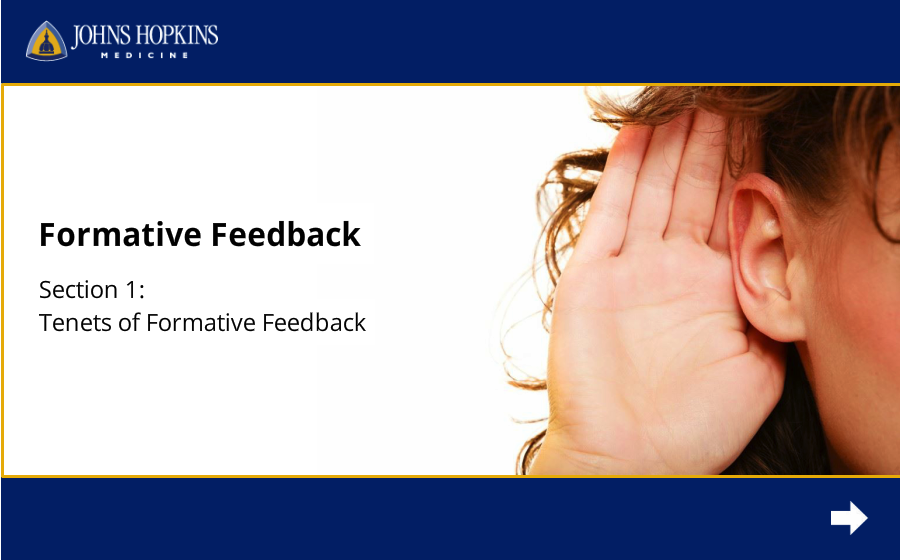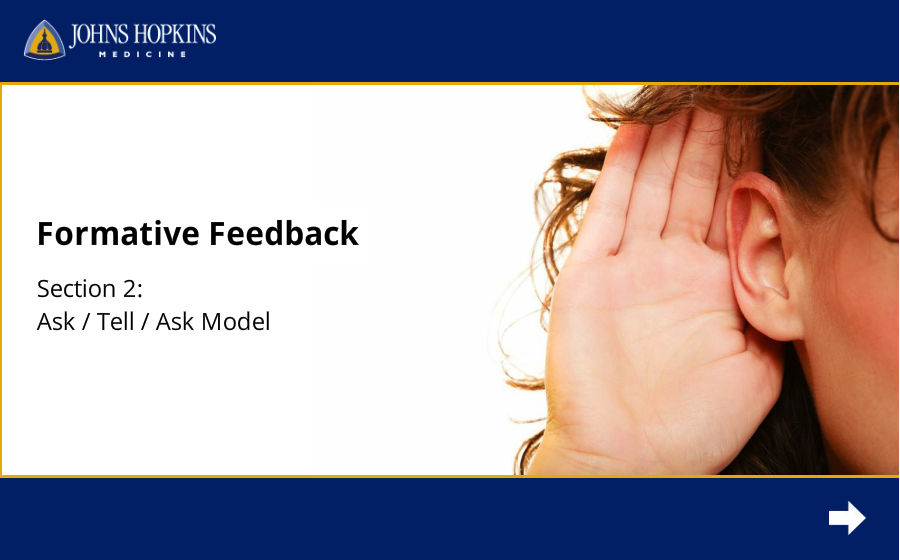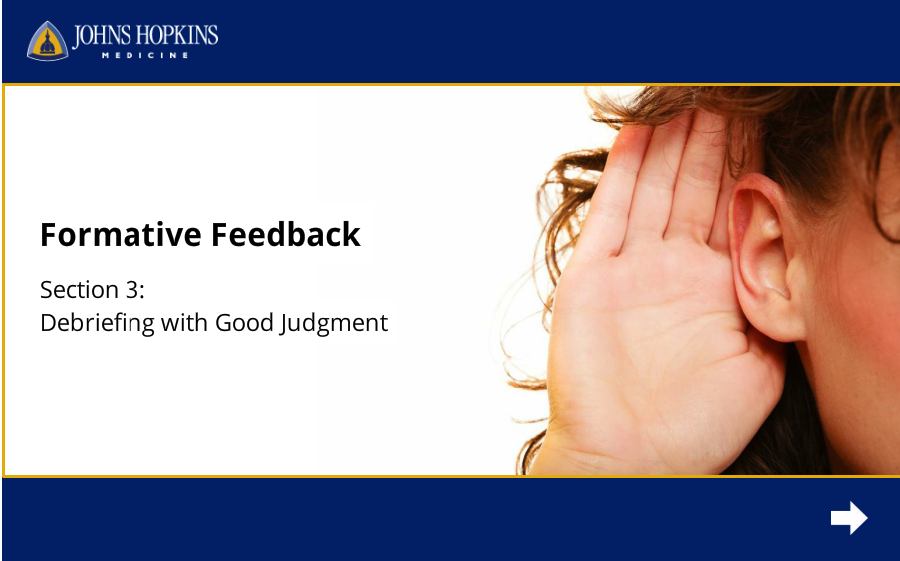Comments? Contact IEE.
1. Objectives
- Recognize that giving high quality feedback is a learned skill that plays an important role in education of adult learner.
- Identify aspects of high quality actionable feedback in both straightforward and more challenging settings.
- Develop a strategy for integrating formative feedback into one’s teaching practice.
2. Preparation in Advance
To whom and in what settings are you expected to give feedback now?
What challenges have you found?
What successes have you met?
When considering feedback you received as a learner, what memories come to mind?
How do these memories affect your delivery of feedback now?
3. The Module
4. Application of the Module
Develop a plan for how to integrate Ask/Share/Ask approach to day-to-day feedback
5. Next Steps and Coaching
Think of recent delivery of feedback using concepts above. Reflect on what was effective and what you might improve upon.
6. Summary Points
Formative feedback is crucial to experiential learning.
Delivery of formative feedback is a skill that can be learned, practiced, and improved.
Guiding reflective practice can change frameworks, actions and performance.
Debriefing with good judgment affords the learner respect and an opportunity to address gaps in knowledge, skills, and attitude.
About the Author
Module Editors
Harry Goldberg, PhD
Assistant Dean
Director of the Office of Academic Computing
Member of the IEE Managing Board
Johns Hopkins University School of Medicine
Michael T. Melia, MD
Associate Professor of Medicine
Fellowship Program Director
Associate Director for Faculty Engagement, Osler Medical Training Program
Tausig College Advisor
Johns Hopkins University School of Medicine




